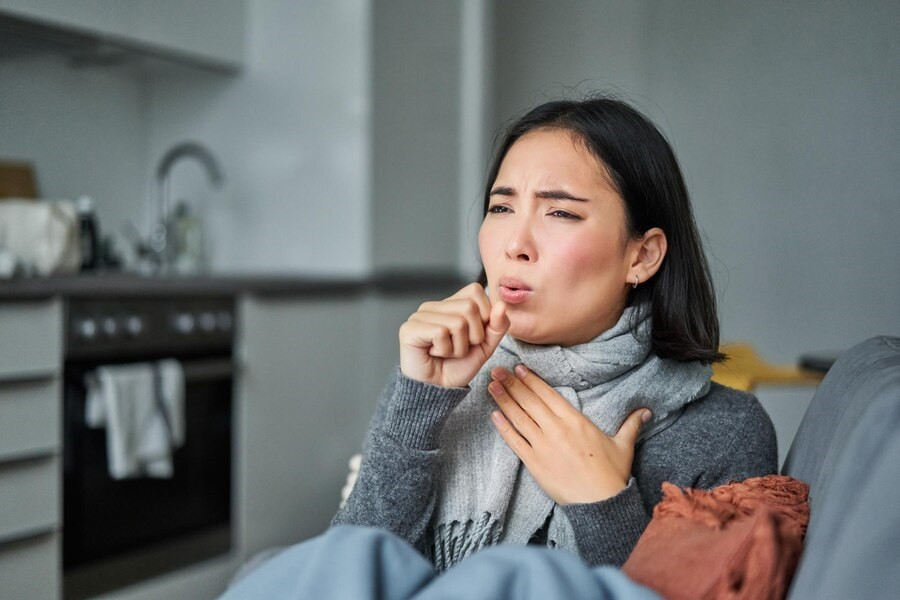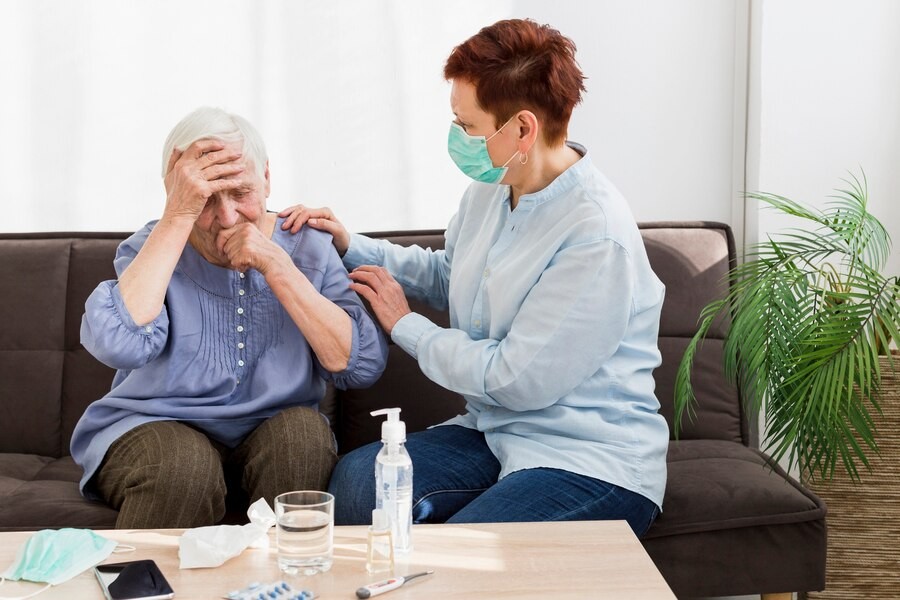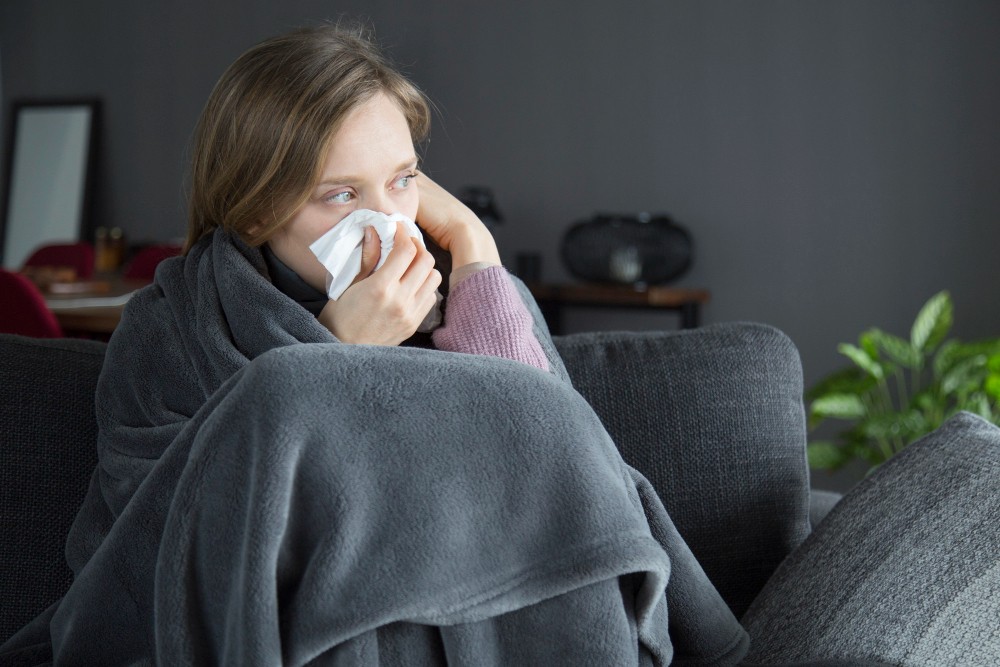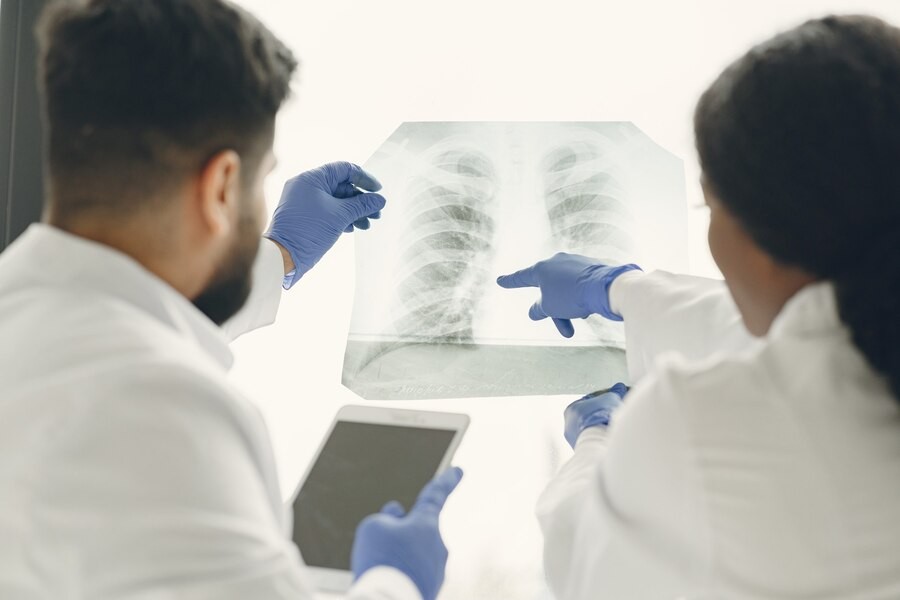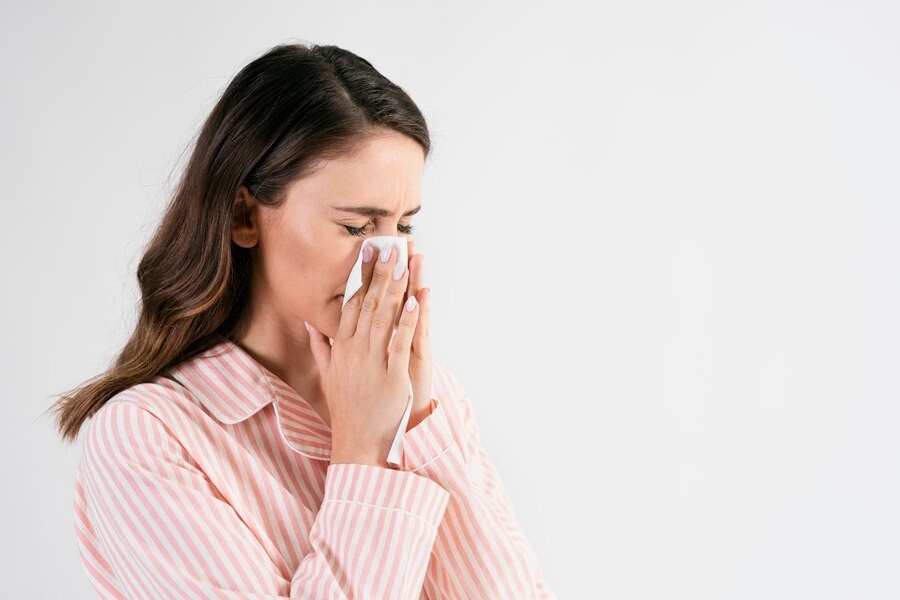Pneumonia, in general, is a lung infection that causes a variety of symptoms. Common symptoms include coughing up phlegm with pus, high fever, difficulty breathing, chest pain, fatigue, nausea, and vomiting. The severity of symptoms and treatment options vary depending on the type of pneumonia itself.
Types of Pneumonia
1. Aspiration pneumonia
Aspiration pneumonia is a lung infection caused by the entery og materials such as saliva, food, liquids, vomit, or foreign objects into the lungs. Symptoms include shortness of breath, wheezing, coughing up blood or pus, chest pain, bad breath, and extreme fatigue.
Unlike other types of pneumonia, the symptoms of aspiration pneumonia appear quickly, often within 1-2 hours after inhaling something inappropriate, and can last for 1-2 days.
2. Chemical pneumonia
Chemical pneumonia is lung inflammation caused by exposure to specific toxins such as liquids, gases, dust particles, or smoke. Some chemicals irritate the lungs and can cause fatal damage to other organs.
Symptoms vary depending on the strength, form, and type of chemical, duration of exposure, and underlying medical conditions. Common symptoms include:
- A burning sensation in the nose, eyes, lips, mouth, and throat
- Dry cough or cough with colored mucus
- Coughing up blood or frothy pink liquid
- Nausea or stomach pain
- Chest pain
- Difficulty and pain when breathing
- Headache
- Flu-like symptoms such as fever, weakness, or feeling unwell
Seek medical attention immediately if you have rapid breathing and pulse, burns in your mouth, swelling in your eyes or tongue, a chemical odor on your body, foamy saliva from coughing, or a muffled voice.
3. Community-acquired pneumonia (CAP)
Community-acquired pneumonia (CAP) is the most common type of pneumonia that occurs outside of hospitals or other healthcare facilities. This type of pneumonia is diagnosed when a person has not received recent treatment at any hospital or other health facility.
4. Bacterial pneumonia
Bacterial pneumonia is caused by bacteria, specifically Streptococcus pneumoniae. These bacteria can live in the throat without causing problems, but if the immune system is compromised, they can enter the lungs and cause infection.
Bacterial pneumonia is more dangerous in senior citizens, people with asthma, heavy drinkers, active smokers, and those with weakened immune systems or recovering from illness.
5. Viral Pneumonia
Viral pneumonia is caused by a variety of viruses, including influenza, parainfluenza, adenovirus, varicella-zoster, MERS, and COVID-19. The symptoms are similar to bacterial pneumonia, but it is usually milder and can be treated at home with rest, drinking enough water, and supportive care.
6. Walking pneumonia
Walking pneumonia, also known as atypical pneumonia, is a pneumonia that presents with mild to moderate symptoms that allow the patient to continue with their daily activities as usual. However, this condition can be serious and affect overall health. Symptoms of atypical pneumonia include coughing, fever, chest pain, chills, headaches, and severe flu-like symptoms.
Even if you feel fine, people suffering from this pneumonia should rest, avoid transmission to others by wearing masks and staying at home, drink plenty of water, and keep consulting a doctor.
7. Fungal pneumonia
Fungal pneumonia is caused by inhaling fungal spores mixed with air. This infection is typically accompanied by flu-like symptoms such as a cough, headache, thick mucus, fever, and chest pain.
Fungal pneumonia is less contagious than other types of pneumonia and is more common in people with weakened immune systems, those who have compromised immune systems, have recently undergone cancer treatment, have recently had an organ transplant, or are taking immunosuppressive medications.
Whichever type of pneumonia you have, you should not attempt to treat it yourself. Consult your doctor regarding the development of your symptoms so that you can receive appropriate treatment.
If you need medical advice or consultation, you can either visit a doctor or make use of the consultation features that are available in the Ai Care application by downloading the Ai Care application from the App Store or Play Store.
Looking for more information about other diseases? Click here!
- Sean Edbert Lim, MBBS
Korin Miller (2023). 7 Types of Pneumonia. Available from: https://www.health.com/condition/pneumonia/types-of-pneumonia
Mayo Clinic (2020). Pneumonia. Available from: https://www.mayoclinic.org/diseases-conditions/pneumonia/symptoms-causes/syc-20354204
Cleveland Clinic (2021). Aspiration Pneumonia. Available from: https://my.clevelandclinic.org/health/diseases/21954-aspiration-pneumonia
WebMD (2022). Chemical Pneumonia. Available from: https://www.webmd.com/lung/chemical-pneumonia
WebMD (2022). What Is Bacterial Pneumonia?. Available from: https://www.webmd.com/lung/bacterial-pneumonia
Jenna Fletcher (2023). What are the symptoms of viral pneumonia?. Available from: https://www.medicalnewstoday.com/articles/322350
American Lung Association (2023). What Is Walking Pneumonia?. Available from: https://www.lung.org/blog/what-is-walking-pneumonia
Mark Gurarie (2023). What Is Fungal Pneumonia?. Available from: https://www.verywellhealth.com/fungal-pneumonia-5179190

